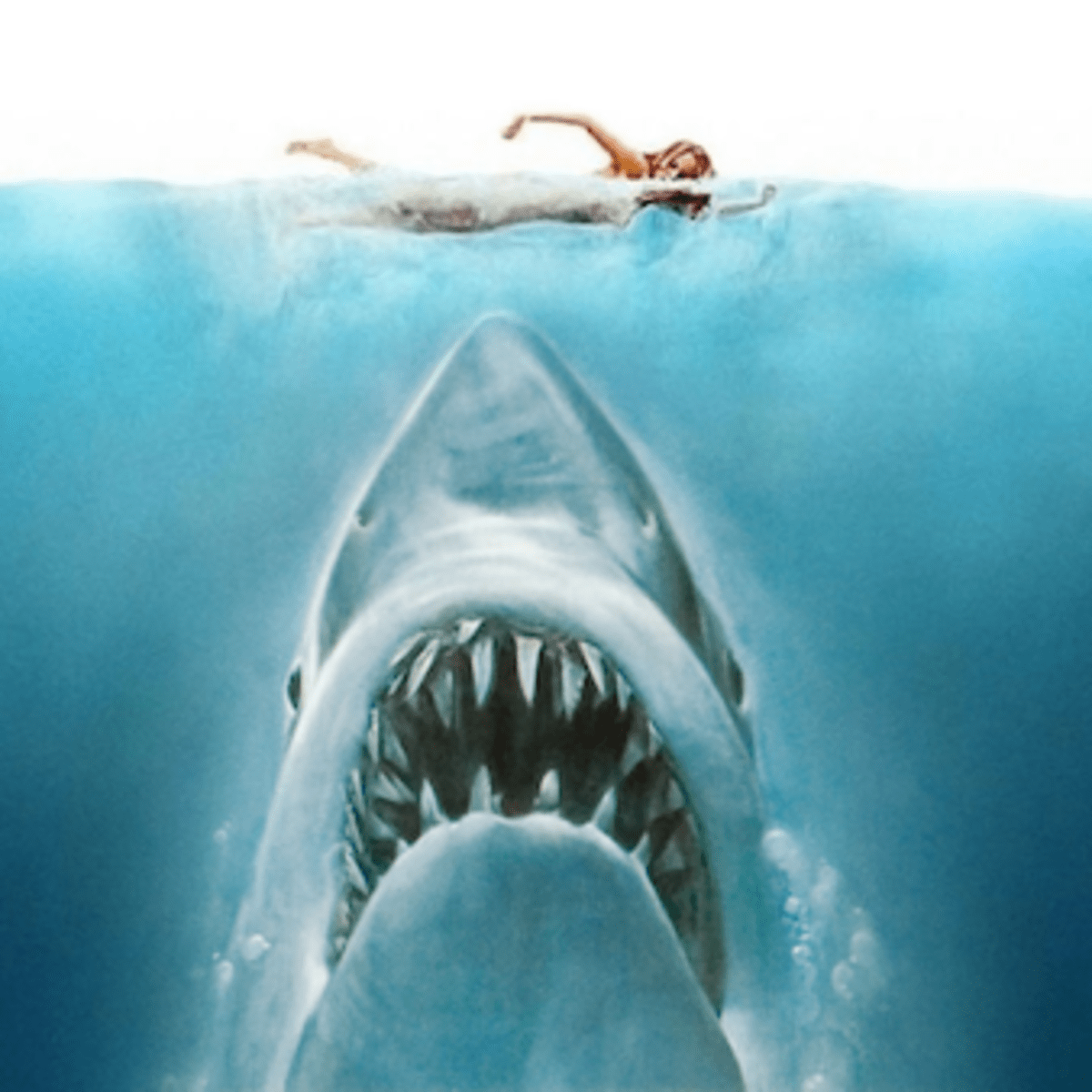Duh-Nuh. Duh-Nuh.
How John Williams made us more afraid of sharks than we maybe should be

UPDATE: A version of this story appeared Feb. 22, 2022, on the news page of Questionist’s parent company, Geeks Who Drink. We’re reposting now because – no shit – a blog called World Animal Foundation emailed us to say that the odds of a shark attack are 1 in 4,332,887, not 1 in 3,748,067. We got our original number from National Geographic, which cited an International Wildlife Museum link that now directs to a 404. Meanwhile, WAF’s article cited the Florida Museum of Natural History, which wrote, “Lifetime risk is calculated by dividing the 2021 population (331,893,745) by the number of deaths, divided by 76.6, the life expectancy of a person born in 2021.” This all sounds pretty arbitrary – dare we say fishy? – but we changed it anyway, because honestly we were flattered someone noticed us.
Composer John Williams’s unmistakable combination of basses, cellos, trombones, and a single tuba that accompanied all of Amity Island’s shark sightings in 1975 has been called the second most terrifying horror film score ever (right behind the stabby violins that soundtracked Psycho). Williams has described the unforgettable instrumentals he wrote for Steven Spielberg’s Jaws as “grinding away at you, just as a shark would do. Instinctual, relentless, unstoppable.”
That score — and that film — are so unsettling that it’s hard to imagine that they didn’t contribute to our collective fear of sharks. (The official term for a fear of sharks is galeophobia, but that’s too long for Wordle so nobody cares.) According to a 2015 survey conducted by Ipsos, more than half (51%) of Americans say they’re “absolutely terrified” of sharks, and four in 10 responded that they’re afraid to swim in the ocean because they’re worried about sharks.
But we’re not just afraid of sharks: we’re also pretty freaked out by what they could do if they started snacking on our assorted limbs. “We’re not just afraid of things because of the likelihood that they’ll happen, but [also] because of the nature of them if they do happen,” David Ropeik, the author of the book How Risky Is It, Really? Why Our Fears Don¹t Always Match the Facts, told Live Science. “So it may be unlikely that you’ll be attacked by a shark, but it would suck if you did.”
But the truth is, the chance that we’ll be eaten (or even nibbled on) by a shark is incredibly rare. The Florida Museum puts the odds of being killed by a shark at 1 in 4,332,887, which the outlet says is a longer shot than dying from being struck by lightning, crushed beneath a vending machine, or flattened by a cow that falls on you in a field.
If John Williams had written a piece of music that accompanied scenes of cows toppling over, we’d probably be scared shitless of that too.
